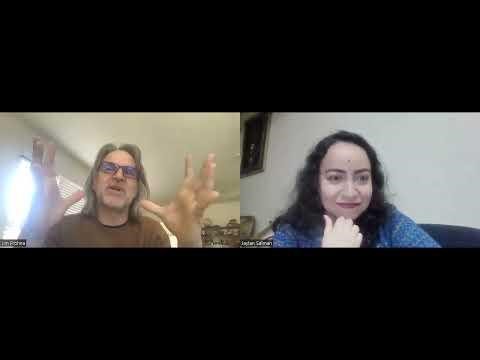Cameras Bearing Witness to People in The Room
AppleTV+ Shrinking is the kind of show people stream to throw the burdens of the day behind. It’s funny, quirky, well-written, and showcases some of the best talents on TV. Imagine a series starring Harrison Ford, Jason Segel, and a fresh-faced Jessica Williams. The result is a breath of fresh air on the streaming service platform and a story to hook up TV series buffs and those looking for a night watch, before-going-to-bed quickie.
Shrinking tackles mental health from an interesting angle. It questions the limitations of grieving and coping with tragedies without losing a sense of wonder or resorting to rhetoric vapidity. It uses its galvanizing cast to the utmost benefit. Ford is a veteran superstar whose charisma is imprinted in the hearts and minds of millions growing up whether to worship his mega star Indiana Jones/Star Wars fame or his gritty roles in The Fugitive, Air Force One, and Blade Runner. Heshines in a role that plays comedy through a low-key, grounded performance.
I had the pleasure of speaking with Jim Frohna, series cinematographer of the award-winning Amazon series Transparent and Season 2 of HBO’s lauded series Big Little Lies fame. His work centers around TV series that are not afraid to show how humans struggle to figure themselves out and figure out the world around them. He wants to feel multiple things as a participant and collaborator in creating the art, so he lets his gut guide him toward the show where he feels he can retain that artistic input.
The conversation flowed smoothly, with minor interruptions from Frohna’s pets. Frohna explained that the core of Shrinking was the Laird family whom he and James Ponsoldt -pilot director and one of the producers- loved and cared for. This gave the series its authentic shift from slapstick comedy to intense emotional drama at times. The pace didn’t feel forced or constricting due to the masterful storytelling and Frohna’s swift camerawork, from close-ups to lighting work which framed the characters masterfully, setting the mood for lighter or darker scenes.
“We cared about this family. They meant a lot to us. The show itself goes from slapstick comedy to some dry humor, then into real grief and real pain. So we talked about how we could visually bring this world to life in a way that can be a container for all the range of what happens in the show. What struck me instinctually was to have it very grounded and feel like a real place and to light it very naturalistically and to let the space be real where both the silly stuff and the serious, heartfelt stuff exist in that.”

Jim merges with the details, he becomes the story that he is capturing with his camera. His style is grounded in subtlety and realism with some swagger, directing audiences to what matters in the scene. Shrinking is the kind of show that demands attention with every frame. It’s a tight-knit group of people, families, coworkers, friends, and a main character who doesn’t have a clue as much as his patients do. The concept of a drama that creates an endearing ode to struggling with mental health without lightly handling the heavy subject matter is a lure into an intimate world that feels -but doesn’t feel- very familiar.
Frohna is as open as he is tactical, focused on telling the story and answering the questions with as many possibilities. Having a conversation with him was both fun and informative,
“Cinematography is not an exact science, it’s almost like the camera bears witness to the emotions in the room and what the characters are going through. So, kind of separate from how we frame it or the lens choice that we make, it’s more of a spiritual or emotional place for the [camera] operator to be in the room. We talk a lot -as the person behind the camera- about being open and receiving whatever is happening and the feeling in the room. It doesn’t come from the head but from the heart.”
Talking to Frohna reminded me of my earliest memories of watching movies, and how it was hard and mystique understanding what a camera operator might feel while approaching an actor’s face with an extreme close-up, or how lighting plays into introducing a character within a specific tone,
“As far as Jimmy Laird -main protagonist played by Jason Segel- goes, we talked that he’s in this very dark place. We meet him doing drugs and staying up all night. Two things came to my mind; first, he spends a lot of time in the shadow, and second that when he’s in the light it’s a harsh light. In the pilot, in the morning after he’s been up all night, he says goodbye to the women, then he goes into the kitchen and he’s confronted with reality with his daughter and the fact that it’s a school day and a workday. We purposely lit into the kitchen with this hard light so that Jimmy and sitting and has to shield himself from the harsh light. Those to me are the subtle or creative ways that you can say a lot about where the character is at and how he’s feeling.”
From extreme close-ups to uncomfortable scenes where two characters beat each other up, I asked Frohna which was harder to shoot an intense fight sequence or a love scene,
“Different scenes have different challenges. I’m much more used to giving all my years on [TV shows] like Transparent where there were a lot of intimate scenes both emotional and physical. So I don’t find those challenging. I think the biggest challenge on [Shrinking] was that most of our spaces are sets so how to keep those feeling real? There are a lot of scenes in the employee break room, so we’re not trying to do the same thing each time. It was more of a mundane challenge. The three characters are back in the break room, two are sitting and one is standing, so what can we do with the camera and lighting-wise? We had to keep it fresh subtly as the season progressed.”
It didn’t take long before my favorite topic – casting Harrison Ford as Paul, a senior therapist with Parkinson’s disease- showed up.
“Like many people I grew up going to the movies and seeing this amazing, funny, dashing, charming, and charismatic heroic figure on the huge screen. The first ten days that Harrison was around everybody was like That’s Indiana Jones or Han Solo and sort of unable to get over it. We still did our jobs but were all starstruck. And then what was amazing was that he’s just a human being. Not only that but he’s a very kind guy, and he loves being on a set. He loves the crew, talking to the grips, or hanging out with the makeup people. Because he spent the last fifty-something years on a movie set and he doesn’t have to work anymore because he doesn’t need the money he just loves being with this group of oddballs and weirdos on the film set. He’s just a down-to-earth guy so the strangest part is how ordinary it became.”
Catch the first season of Shrinking on AppleTV+ and prepare for a watching experience surpassing anything on the current streaming platform.

